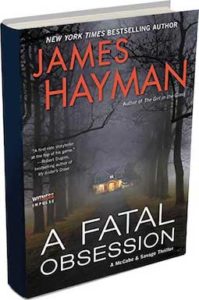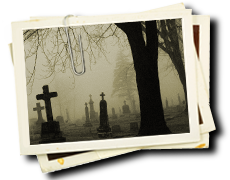In Praise of a Perceptive Editor
Friday, August 3rd, 2012James Hayman: At the moment, I’m in the middle of making final revisions to my third McCabe/Savage thriller. Titled Darkness First the book is due out in the UK in June 2013 and, hopefully, around the same time in the US.
Darkness First is the first of my books to require any kind of extensive editorial rewriting. Number two, The Chill of Night, sailed through with only minor tinkering and the first, The Cutting, required only one fairly simple, though important change to attain its final form.
Darkness First was the most difficult of the three books to write, in many ways the most ambitious and, in my view, also the most interesting. It’s also the first of the three that helped me truly appreciate how valuable a perceptive and talented editor can be, in this case Stefanie Bierwerth who works with Penguin UK in London, can be.
The plot itself is fairly simple. A large haul of oxycontin is smuggled by boat from Saint John, New Brunswick into Eastport, Maine. A distribution network is set up. The drugs are sold. Money is made. Eventually, there is a falling out between the two people responsible for the crime. One is a vicious killer named Conor Riordan and the other a beautiful young woman from Eastport named Tiffany Stoddard. On a dark and steamy (no, not stormy) night in Machias State Park, Conor Riordan brutally stabs Tiff Stoddard to death. The police quickly discover Riordan is the culprit. The only problem is Conor Riordan doesn’t exist.
At the suggestion of her father, Washington County Sheriff John Savage, Detective Maggie Savage of the Portland Police Department comes home to Washington County and volunteers to join the state police investigation into the crime. Eventually, with the help of her Portland partner, Mike McCabe, Maggie discovers the true killer and solves the crime.
However, in my view, what makes the book work is not just the story line (which I think is pretty good), but also the exploration of Maggie’s feelings for the other major characters and the conflicted feelings/relationships she has with them. She finds herself trying to mediate a nasty feud between two men she has loved all her life, her seventy four year old father, who she learns may be dying of cancer, and her wild and irresponsible younger brother Harlan, who has recently returned from service in Iraq and is recovering from a serious wound and suffering from PTSD.
Maggie’s also trying to sort out her screwed-up love life and needs to resolve the strong attraction she feels to both her Portland partner Mike McCabe and a charming and handsome state police detective named Sean Carroll.
In the end unraveling and resolving these feelings and relationships added a lot to the story. It also made the book more challenging to write and, in my view, ultimately much more interesting. Stef Bierwerth at Penguin understood this and her perceptive insights and suggestions were a huge help in getting it right. Thanks in part to her, I think it may be the strongest of the three McCabe/Savage books so far. I hope my readers agree.


